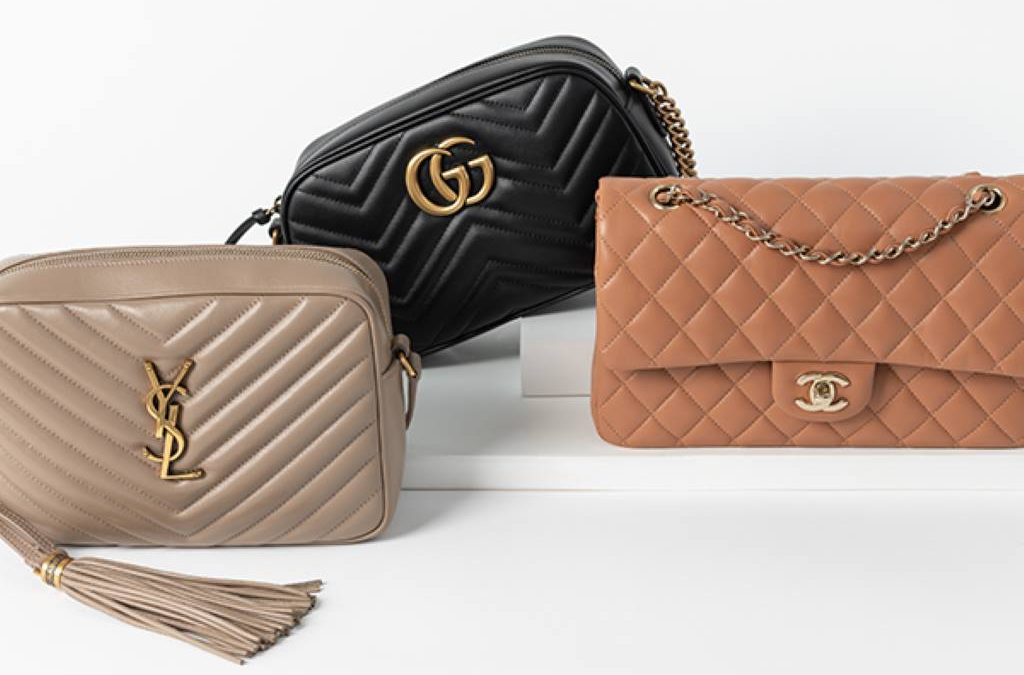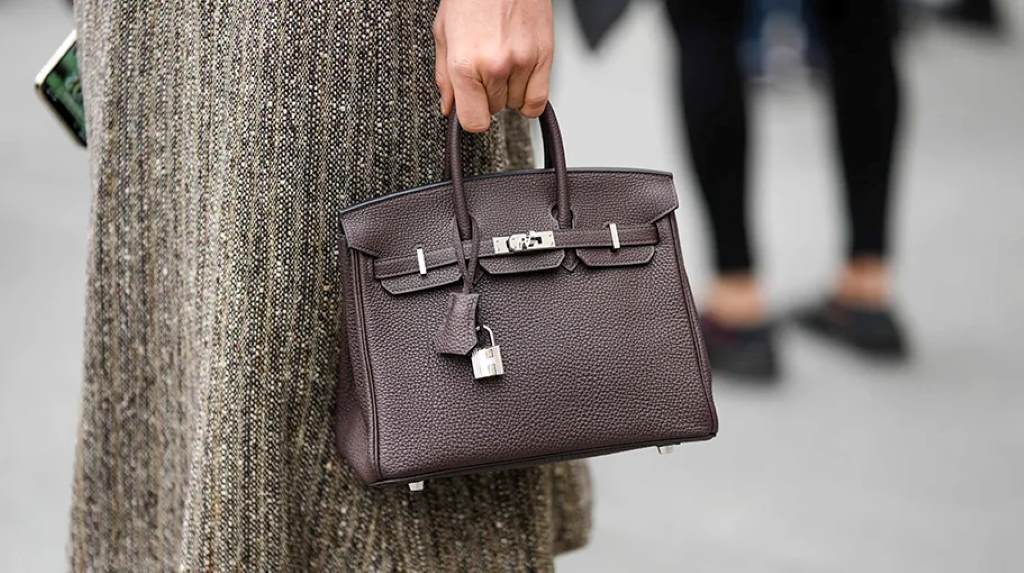
Shein Clothes Sizing Tips: How to Choose the Right Size with Confidence
August 7, 2025
Restore Shine to Celine Macadam Nylon Bag: Your Complete Care Guide
August 19, 2025Imagine standing in a luxury boutique, a sleek Fendi Baguette bag catching the light beside a timeless Coach Tabby, both whispering promises of style and status. One is a symbol of Italian opulence, the other a beacon of American accessibility. But which one truly delivers on size, value, and that coveted “it” factor? In the battle of Coach vs. Fendi, we’re diving deep into the world of handbags to compare craftsmanship, practicality, and worth. Whether you’re a fashion enthusiast or a savvy shopper, this guide will help you decide which brand reigns supreme for your wardrobe and wallet.
Table of Contents
ToggleThe Contenders: Coach and Fendi at a Glance
Before we unpack the details, let’s set the stage. Coach, founded in 1941 in New York, is celebrated for its heritage of quality leather goods and accessible luxury. With a focus on durability and classic designs, it appeals to those seeking style without breaking the bank. Fendi, an Italian fashion house established in 1925, is synonymous with high-end craftsmanship, bold aesthetics, and exclusivity, often commanding premium price tags. Both brands have carved distinct niches in the luxury handbag market, but their approaches to size and value differ significantly.
Why Compare Size and Value?
When choosing a handbag, size and value are critical. Size determines functionality—can it hold your essentials or more? Value weighs cost against quality, durability, and brand prestige. This comparison answers the burning question: does Coach’s affordability compromise its worth, or does Fendi’s luxury justify its price? Let’s explore how these brands stack up.
Coach: The Champion of Accessible Luxury
Size Offerings: Versatility for Every Lifestyle
Coach handbags are designed with practicality in mind, offering a range of sizes to suit diverse needs. From compact crossbodies like the Coach Swinger (ideal for evenings out) to spacious totes like the Coach Rogue, there’s something for everyone. Here’s a breakdown:
- Small Bags: The Coach Tabby Pillow (8.5” x 5” x 2.5”) is perfect for minimalists who need just a phone, wallet, and keys.
- Medium Bags: The Coach Willow Bucket Bag (10.5” x 10” x 5.5”) balances style and function, fitting a tablet, makeup, and essentials.
- Large Bags: The Coach Rogue Tote (15.5” x 11.5” x 6”) is a workhorse, accommodating laptops, gym gear, or even an overnight kit.
Coach’s size variety caters to students, professionals, and trendsetters, ensuring you don’t sacrifice style for space. Their structured designs maximize interior capacity, often featuring multiple compartments for organization.
Value Proposition: Quality Meets Affordability
Coach has long positioned itself as the epitome of “affordable luxury.” With prices typically ranging from $150 to $500, Coach bags are accessible to a broader audience compared to high-end brands. But does affordability mean lower quality? Not at all. Coach uses high-grade leathers like pebble and glove-tanned leather, known for durability and a luxurious feel. Their bags often come with a one-year warranty and free lifetime servicing, adding long-term value.
Recent data highlights Coach’s resurgence, with its Tabby bag becoming a viral hit among Gen-Z and celebrities like Jennifer Lopez and Olivia Rodrigo. Tapestry Inc., Coach’s parent company, reported strong quarterly results in 2025, driven by demand for quality at a reasonable price point. This suggests Coach delivers on both craftsmanship and trendiness without the ultra-luxury markup.
Drawbacks to Consider
While Coach excels in accessibility, its mass production and outlet sales have led some to question its exclusivity. Overexposure in the early 2000s diluted its luxury status, though recent efforts under creative director Stuart Vevers have repositioned it as “expressive luxury.” Additionally, some post-2008 designs, particularly outlet-specific styles, have been criticized for lower quality.
Fendi: The Pinnacle of Italian Extravagance
Size Offerings: Compact Glamour with a Purpose
Fendi’s handbags lean toward compact, statement-making designs that prioritize aesthetics over utility. Their iconic Baguette bag, a cultural phenomenon since its debut in 1997, measures around 10.5” x 5.5” x 1.5”—perfect for a chic night out but less practical for daily errands. Other offerings include:
- Small Bags: The Fendi Mini Baguette (7.5” x 4” x 1”) is a darling for minimalists, holding just the essentials.
- Medium Bags: The Fendi Peekaboo (13” x 9.5” x 5”) offers more room, fitting a small tablet, wallet, and cosmetics.
- Large Bags: The Fendi Sunshine Shopper (13.5” x 11” x 6.5”) is spacious enough for work or travel, though still smaller than Coach’s largest totes.
Fendi’s focus on smaller, structured silhouettes reflects its high-fashion ethos, catering to those who value elegance over capacity. These bags often feature luxurious materials like exotic leathers or fur, enhancing their exclusivity.
Value Proposition: Prestige at a Premium
Fendi’s price tags, often ranging from $1,500 to $5,000+, reflect its status as a high-end fashion house. The brand’s meticulous craftsmanship, using premium materials like calfskin and python, justifies the cost for luxury enthusiasts. Fendi’s heritage, tied to its family-run roots and iconic designs like the Baguette, adds intangible value through prestige and cultural cachet. Celebrities like Cara Delevingne and collaborations with designers like Karl Lagerfeld reinforce Fendi’s elite status.
However, Fendi’s value is less about practicality and more about investment potential. A well-maintained Fendi bag, especially a limited-edition piece, can retain or even appreciate in resale value. For instance, vintage Baguette bags often fetch high prices on platforms like LePrix. Yet, the high cost can feel excessive when compared to the actual production cost, as seen in critiques of ultra-luxury brands like Dior.
Drawbacks to Consider
Fendi’s smaller sizes may not suit those needing a bag for work or travel. The premium price also limits accessibility, and maintenance costs for exotic materials can add up. Unlike Coach, Fendi’s repair policies are less generous, often requiring costly servicing.
Read Also:
How to recognize an original from a fake Chanel bag
Decorated bags, for a summer full of joy spring
Head-to-Head: Size and Value Compared
Size: Functionality vs. Fashion
Coach wins in size versatility, offering bags that cater to a wide range of needs, from compact crossbodies to roomy totes. Its designs prioritize functionality, with features like zippered compartments and adjustable straps. Fendi, while iconic, focuses on smaller, fashion-forward silhouettes that sacrifice space for style. If you need a bag for daily use or work, Coach’s larger options like the Rogue Tote are more practical. For evening events or minimalist outings, Fendi’s Baguette or Peekaboo shines.
Value: Cost vs. Longevity
Coach delivers exceptional value for budget-conscious buyers. Its lower price point, durable materials, and lifetime servicing make it a smart long-term investment. A $400 Coach bag can last years with proper care, offering comparable quality to pricier brands. Fendi, however, appeals to those prioritizing status and exclusivity. While its bags are impeccably crafted, the high cost and limited functionality may not justify the price for everyone.
Brand Perception and Trends
Coach’s “expressive luxury” pivot targets younger, trend-savvy consumers, bolstered by social media buzz and influencer endorsements. Fendi maintains its high-fashion allure, appealing to affluent buyers who value heritage and exclusivity. However, Coach’s accessibility makes it more inclusive, while Fendi’s elite status limits its audience.
Who Wins? It Depends on Your Priorities
If you value size and practicality, Coach is the clear winner. Its diverse range of sizes and functional designs make it ideal for everyday use, from commuting to weekend trips. The affordability and durability further solidify its value, especially for those new to luxury or seeking versatile staples.
If prestige and style are your priorities, Fendi takes the crown. Its iconic designs and superior craftsmanship cater to fashion aficionados who see handbags as status symbols or collectibles. However, the higher cost and smaller sizes may not suit everyone’s lifestyle.
Pro Tip: Consider Your Needs
- For Daily Use: Opt for Coach’s Willow or Rogue for space and durability.
- For Special Occasions: Choose Fendi’s Baguette or Peekaboo for head-turning elegance.
- For Budget-Conscious Buyers: Coach’s outlet sales or Coachtopia line offer sustainable, affordable options.
- For Investment Pieces: Fendi’s limited-edition bags may yield better resale value.
Final Thoughts: Finding Your Perfect Bag
In the Coach vs. Fendi showdown, there’s no universal winner—it’s about what aligns with your style, budget, and lifestyle. Coach offers unbeatable value and versatility, making luxury accessible without compromising quality. Fendi delivers unmatched prestige and craftsmanship, perfect for those who prioritize exclusivity. By weighing size, functionality, and cost, you can choose a bag that elevates your wardrobe and meets your needs.
Ready to pick your dream handbag? Share your thoughts in the comments—do you lean toward Coach’s practicality or Fendi’s luxe allure? For more fashion insights, subscribe to our blog or explore our guides on luxury handbags and sustainable style!
Warning: Trying to access array offset on null in /home/todayd5097/public_html/wp-content/themes/betheme/includes/content-single.php on line 286


